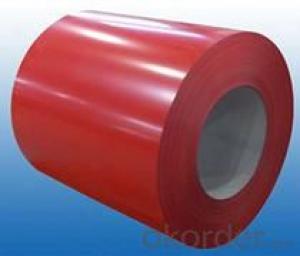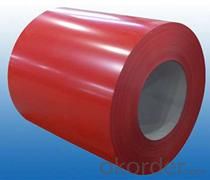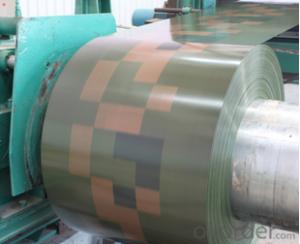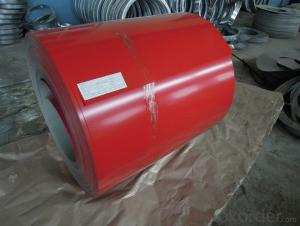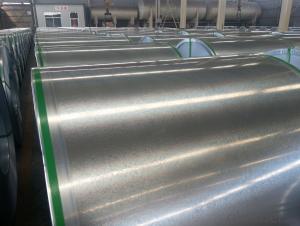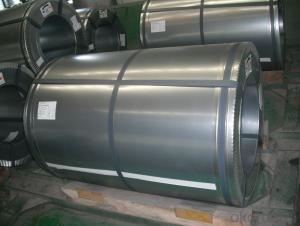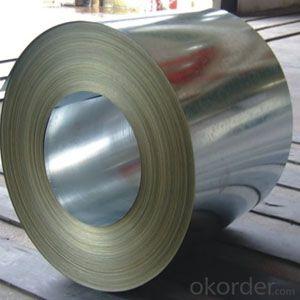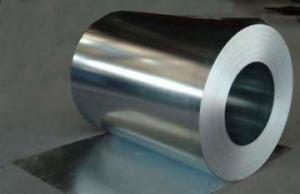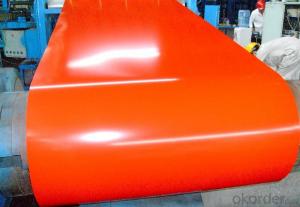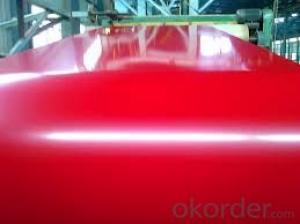colo coated Galvanized steel sheets/coils
- Loading Port:
- China Main Port
- Payment Terms:
- TT OR LC
- Min Order Qty:
- -
- Supply Capability:
- -
OKorder Service Pledge
OKorder Financial Service
You Might Also Like
1) AVAILABLE DESIGNATION OF (Prepainted galvanized steel coils) printed PPGI coils
Quality Q/BQB 440-2003 JIS G3312-1994 EN 10326-2004 ASTM A653-02a
EN 10327-2004 (BASE PLATE)
(BASE PLATE)
Commercial Steel TDC51D CGCC DX51D+Z/AZ CS Type A/B/C
Forming Steel (TSt01,TSt02,TSt03) CGCD1 FS Type A, Type B
Drawing TDC52D /TDC53D - DX52D+Z/AZ DDS TYPE A/C
Steel DX53D+Z/AZ
Structural TS280GD(TStE28) CGC400 S280D+Z/AZ SS275
Steel TS350GD(TStE34) CGC440 S350D+Z/AZ SS340 Class1
2) OUR SPECIFICATION OF (Prepainted galvanized steel coils) printed PPGI coils
Available Size:
Manufacturer Thickness Width Length of plate Inner diameter of coil
JIANGSU HUIYE STEEL SHEET CO.,LTD 0.2-1.2mm 800/914/1000/1200/1219/1250mm 1000-6000mm 508mm/610mm
Coated Mass OF (Prepainted galvanized steel coils) printed PPGI coils:
Base plate Available Coated Mass(g/m^2)
Galvanized Steel 80, 100, 120, 160, 180
Galvalume Steel 50, 70, 150
Available Painting OF (Prepainted galvanized steel coils) printed PPGI coils:
Category of Painting Item Code
Polyester PE
High-durability polyester HDP
Silicon modified polyesters SMP
Polyvinylidene fluoride PVDF
Easy-Cleaning —
Painting Thickness Top side: 20+5microns;
Bottom side: 5~7microns.
Color System Produce according to RAL Color System or as per buyer’s color sample.
Painting structure Top surface Bottom surface
Primer coating No coating 1/0
Primer coating Primer coating 1/1
Primer coating + Finish coating No coating 2/0
Primer coating + Finish coating Primer coating or single back coating 2/1
Primer coating + Finish coating Primer coating + Finish back coating 2/2
- Q: I'm currently in an Estimating and Bidding class. I have to estimate two divisions for a multi-million dollar project. The project that I chose is around 6 million dollars and involves constructing a new gas/lighting building. I chose to estimate steel, and my question is, around how much out of the 6 million goes toward just the steel estimate? If it helps, this building is has two floors and is roughly about 100x70 feet. The building not wood construction, but rather steel and brick. How much of that 6 million would go into the steel? I'm not looking for anything exact, just roughly.
- That is a little tough to answer given the details. I will try to answer it as best I can. You can send me a message if you need further help and I can get some more details from you. If it is a 6 million dollar project, that is about $428/sf - (6 million divided by 14,000 sf). $428 is a little bit higher end then say, just a Walmart which is a block and steel box. Assuming you have a concrete slab on the first floor, metal deck on the second floor, with steel beams and open web joists framing, steel columns and steel roof framing with a metal deck roof.... you could be approx 10-15% of the total 6 million. Now, this would include the structural steel, not light gauge steel framing for walls. It sounds like you are looking for structural steel, not metal stud framing. Hopefully this helps, I can check back to this thread later to see if you've had to add any more details.
- Q: I want to make an object out of stainless steel. Initially, I had planned to get it cut out of stainless steel sheet but several of the edges need to be rounded and I think it would be much cheaper to get it made of cast iron formed in a mold.Yet, it must be stainless steel. Can stainless steel be formed in a mold like iron can ... i.e. poured in liquid form into a mold and harden into shiny stainless steel?Would a regular foundry do this or do I need something special?Thanks.
- You have 2 options. Sand casting or investment casting. Stainless steel can be cast with either of these methods. In either case a model or pattern will have to be created. For sand casting the pattern is all that is needed to go to casting. For investment casting the pattern is used to make a wax casting, which is then coated with the investment. The wax is burned out and the metal is then poured into the cavity. If you are making just 1 or 2 pieces you can have waxes machined. This saves the intermediate step Depending on the size machining may still be your best option. Especially if you want just 1 part.
- Q: I am doing an assignment for my materials class, im not asking for the answer but just some help. I have the assignment finished and handed in but the teacher gave it back with one comment, he asked me to explain the grain growth in steel during hydraulic press bending. Im completely stuck, please help. Thanks.
- Grain Growth In Metals
- Q: What are the main characteristics of steel coils?
- The main characteristics of steel coils include their high strength and durability, excellent corrosion resistance, and ability to be easily formed and shaped. They are typically made from carbon steel and come in various widths, thicknesses, and lengths. Steel coils are commonly used in a wide range of industries such as construction, automotive, and manufacturing for applications such as roofing, structural components, and electrical appliances.
- Q: What are the common coil slitting methods?
- The common coil slitting methods include rotary shear slitting, loop slitting, and oscillating slitting.
- Q: I have hundreds of pounds of scrap steel... who purchases this steel and what is the price per pound etc. of this? Does someone pick it up or do I bring it somewhere?
- It okorder /
- Q: How are steel coils used in the manufacturing of shipbuilding?
- Steel coils are used in shipbuilding for several purposes. They are primarily used to fabricate the hull and structural components of ships. Steel coils are cut, shaped, and welded to form various ship sections, such as the hull plates, bulkheads, and decks. These coils provide the necessary strength, durability, and corrosion resistance required for marine applications. Additionally, steel coils are also used to manufacture other shipbuilding components like piping, machinery, and equipment, ensuring the overall integrity and functionality of the vessel.
- Q: I am searching for an online article which discusses any aspect of the use of austenitic stainless steels. I was just wondering if anyone could help me find one. No sales articles. Thank you!
- *Austenitic, okorder
- Q: How are steel coils used in the manufacturing of automotive exhaust systems?
- Steel coils are used in the manufacturing of automotive exhaust systems as they provide the necessary strength and durability required for this critical component. These coils are typically shaped and formed into various parts such as pipes, mufflers, and catalytic converters, which are then welded together to create the exhaust system. The steel coils also undergo additional processes like coating or galvanizing to enhance corrosion resistance, ensuring the longevity of the exhaust system.
- Q: I'm putting a bathroom in my basement. I'm an Ironworker btw. I wanted to go with steel studs due to the fact that they are light, and I won't have a big mess. I live in the Chicago area and they should be easy to find. Here is my question. Are they not being used anymore? I ordered 100 studs from Lowe's but they didn't have track. The delivery guy was a retired Carpenter and he told me that I got all the studs they had, they no longer stock steel studs, and they don't have track. Am I missing something? Menards didn't have track either.
- Steel studs are mainly for commercial applications on non bearing walls. 100 studs, must be one big assed bathroom. Do yourself a favor and install a pressure treated bottom plate, even if you use steel studs.
Send your message to us
colo coated Galvanized steel sheets/coils
- Loading Port:
- China Main Port
- Payment Terms:
- TT OR LC
- Min Order Qty:
- -
- Supply Capability:
- -
OKorder Service Pledge
OKorder Financial Service
Similar products
Hot products
Hot Searches
Related keywords
